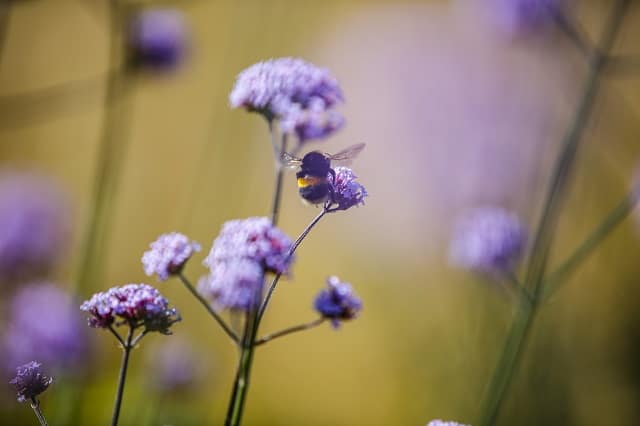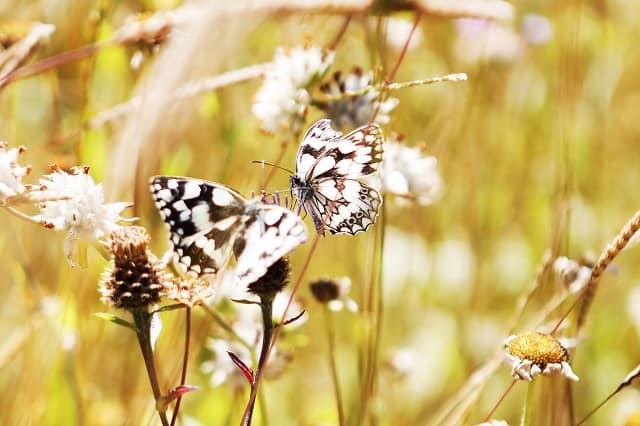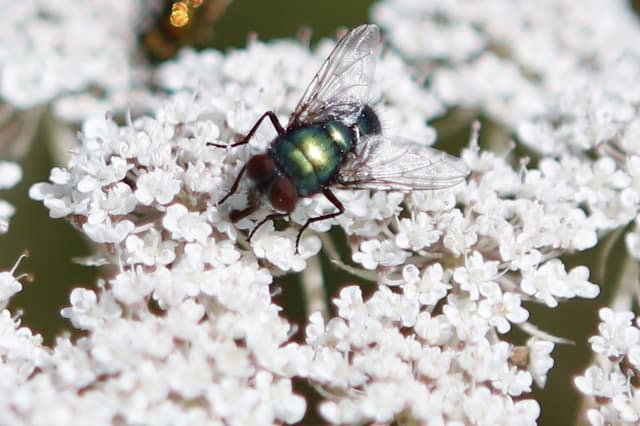
Green Councillor Kevin Pressland is a passionate campaigner for nature and the natural environment. His understanding of the threats faced by the natural world is based on expertise gained from a 40-year career in horticulture, garden design and sustainable land management.
Here he highlights the crisis in our insect populations and the danger this poses for human life:
We need insects
We are facing a crisis in our insect populations. Recent figures show a 69% reduction in insect numbers in the last 10 years in Kent and loss of insect numbers for decades previously. The average loss of insect populations in the last 10 years in English counties is 59%.
We ignore the plight of insects at our peril. Our welfare depends on insects for pollination, to feed birds and other small animals, and for soil and water health.
Almost 75% of our crops/produce are reliant in one way or another from the work of insects in the UK. Important species here are bees (wild solitary bees and bumblebees, as well as domesticated honeybees), flies (including hoverflies and bee-flies), butterflies, moths, wasps, and beetles.
The food chain

In turn, these creatures feed a plethora of species of birds, amphibians, and freshwater aquatic life. They are also intrinsic to healthy soils – whether it be carotid beetles that predate on slugs or insect associates like nematodes who also help control slug populations.
There is strong evidence that the decline in insect numbers has been happening since the push towards intensive farming, including the use of cocktails of chemicals such as herbicides, pesticides and fungicides. This has been exacerbated by major changes in land management, loss of hedgerows, wildlife corridors (fundamental to insects, birds and mammals) and reduction in arable field stubble.
Insects are often adversely affected by the constant onslaught on our remaining semi natural and ancient woodlands, with authorities often giving the impression that these can easily be replaced by just growing a few more trees.
What can we do
Wildlife corridors are vital. They are needed through towns, through the countryside and through new developments, to connect remaining fragmented habitats. When we are building many more properties, we also need to be creating green corridors through these developments that both improve people’s quality of life and create those important wildlife corridors.
Farming is changing
Subsidies for farming are changing. The old ‘Basic Income Scheme’ effectively gave money for how many hectares you had (nothing for those below 5 hectares of land), generally without any specific obligations on the use of this money unless you agreed to be in additional schemes such as Countryside Stewardship. But a transition is happening.
Now farmers will only get subsidies based on public good criteria, including better soil management, creating habitats such as hedgerows and tree planting (agroforestry), wildflower meadows, repairing enhancing river and wetland landscapes, under the Environmental Land Management Scheme. There is a large range of options that farmers can choose – but there are no obligations to take these on.
The Regenerative Agriculture Conference in June this year was even bigger with over 6000 attendees’, many farmers who are searching for systems that minimise inputs, create more cyclical farming systems https://groundswellag.com/
At a local level

At local level, we can all manage our gardens in ways that support insects and other wildlife – see for example www.rhs.org.uk/protectingwildlife
For more information on sustainable farming practices see https://agricology.co.uk/ and for agroforestry see https://regenerativefoodandfarming.co.uk/agroforestry/ https://www.soilassociation.org

